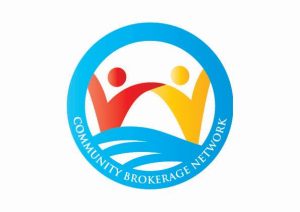The latest in our Meet the Partner feature looks at the Community Brokerage Network. Based in Ayrshire, they help people to access social care. Alison Findlay, Director, tells us more.
What does the Community Brokerage Network do?
The Community Brokerage Network (CBN) helps people who have social care needs because of poor health or disabilities. With the person, we work out what assistance they need to make their lives better and how that could best be provided to fit in with them and their carers’ or families lives.
We believe people are experts in their own care, although at times they might need some help to work out what that looks like and how it is best provided.
For a brief introduction to our work, take a look at the animation:
How does it work?
A broker would be assigned to a person, and would then spend time getting to know them well and helping them work out how their lives might be improved. The broker would then explore sources of support to make that difference.
This support might be already available in the community – maybe a pre-existing group or activity – or it might need to be put in place by formal services such as social work.
The broker is there to help the person work this out, and to make them aware of what is available so that they can have as much choice in how they receive help as possible.
Is there a cost for this help?
Community Brokerage is free to use, as it funded by the Scottish Government’s Support in the Right Direction (SiRD) funding stream.
How can you find a local broker?
CBN is funded to work in Ayrshire, but there are brokerage services also available in other areas of Scotland.
How does brokerage fit with Future Pathways?
CBN has been working in partnership with Future Pathways for four years. The main Broker skills – finding out what people are wanting to help enhance their lives then sourcing the appropriate support – have been completely transferrable to helping people in areas beyond social care.
Since we started working with Future Pathways, we have been introduced to several people across Scotland who have identified they need help do things like secure employment, or do further training or education.
'Our main role is to encourage them to believe in their own strength.'
Michelle is the Broker who has undertaken most of the Future Pathways work.
Michelle, what has been your experience of working with Future Pathways?
The support that CBN offers to people involved with Future Pathways is similar in many ways to brokerage.
Within the role of a broker, there are fundamental skills: being able to listen, not only to what a person says but to what they do not say. Using active listening and reflective skills to help a person realise that they do have dreams and desires. Supporting someone to feel valued. Helping them to understand their rights. Supporting them to be seen as people, rather than problems. Supporting themselves to do the same. Encouraging self-efficacy and decision making.
These skills are also required to do work with someone in need of support to find their own pathway in the world. There is obviously a difference in the people who use the two services. However, in my experience the fears and uncertainties, while from a different place, tend to be similar in both sets of people.
In my time working with Future Pathways, I have found that the support needed to deal with services and third-party agencies is the same for anyone who needs to connect. They feel unworthy, ‘less than’ and invisible. Our main role is to encourage them to believe in their own strength, and validate how they feel while continually working towards independence from the service.
Ultimately the goal, whether it be with CBN or Future Pathways, is the same: to leave the person that you are working with better equipped, more independent and able to manage their own lives.
To find out more about the work of the Community Brokerage Network, visit their website.
To see a full list of everyone Future Pathways works with and to find out more about support providers, view our Delivery Partners page.




